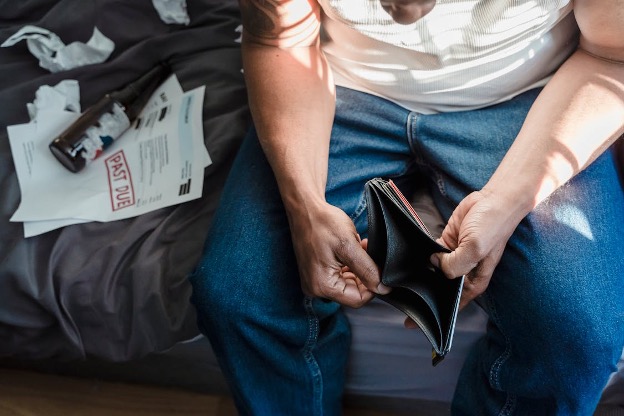Key Takeaways
- Filing for Chapter 7 in Texas provides immediate debt relief by halting collection efforts through an automatic stay.
- Most unsecured debts, such as credit card debt and medical bills, are discharged in Chapter 7, though certain debts like student loans and child support remain.
- Texas exemption laws protect essential property, allowing filers to keep assets like their home, vehicle, and household goods.
- Chapter 7 negatively affects your credit score, staying on your report for up to 10 years, but credit can be rebuilt over time.
- At Debt Redemption Texas Debt Relief, we help Texans resolve high-interest debt through personalized settlement programs, often as a better alternative to bankruptcy.
Please note that Debt Redemption is not a law firm and does not give legal advice. Nothing in this article should be considered legal advice. Debt Redemption can recommend a highly rated Texas bankruptcy law firm if you would like legal advice.
Debt Redemption Texas Debt Relief is a trusted debt relief company in Texas dedicated to helping consumers overcome their financial challenges. We offer personalized solutions including a debt settlement program exclusively offered only to Texans, a debt consolidation loan platform to shop for the best rates, and access to credit counseling solutions via our partners, to help you reduce and manage debt effectively. With a commitment to transparency and customer support, Debt Redemption Texas Debt Relief provides free consultations to guide you towards financial freedom.
As seen on Good Morning Texas, Texas Today, Great Day Houston, Great Day SA, We Are Austin and Daytime
How Chapter 7 Bankruptcy Works
Chapter 7 bankruptcy in Texas involves liquidating non-exempt assets to pay creditors, usually discharging most unsecured debts. This process provides a fresh start, free from overwhelming debt.

Immediate Debt Relief
Filing Chapter 7 triggers an automatic stay, halting all collection efforts—creditors must stop phone calls, letters, lawsuits, and wage garnishments. This pause is an immediate relief and reduces financial stress.
Discharge of Eligible Debts
Once your case is completed, most unsecured debts are discharged, meaning you’re no longer obligated to pay them. Dischargeable debts often include credit card debt, medical bills, personal loans, and utility bills, while debts like student loans, child support, and certain taxes remain.
Liquidation of Assets
Non-exempt assets may be sold to pay creditors, but Texas’ generous exemptions allow you to keep essential property like your home, car, and household goods. Most people find they can retain most of their property.
Pros and Cons of Filing Chapter 7 Bankruptcy in Texas
| Pros | Cons |
| Quick Debt Discharge – Resolves most cases within 3 to 6 months, providing a fast path to a fresh start. | Impact on Credit Score – Negatively affects your credit score and stays on your credit report for up to 10 years. |
| Protection from Creditors – After debts are discharged, creditors can no longer pursue collections. | Loss of Nonexempt Property – Nonexempt assets like luxury items or additional properties may be liquidated. |
| Retain Essential Property – Texas exemption laws allow you to keep essential property like your home, vehicle, household goods, and tools of your trade. | Not All Debts Discharged – Debts like student loans, child support, and certain tax debts aren’t discharged. |
| Fresh Financial Start – Eliminates most unsecured debts, allowing you to rebuild your financial future. | Public Record – Bankruptcy filings are public records accessible by employers, landlords, and lenders. |
Debt Advice for Considering Chapter 7 Bankruptcy
List your debts, including amounts owed, interest rates, and monthly payments, to get a clear picture of your obligations. Assess if you can meet your monthly payments or if you’re falling behind. Evaluate your assets and determine if any non-exempt property could be liquidated to pay off debts. This helps you decide if Chapter 7 bankruptcy is the right choice.
Chapter 7 bankruptcy in Texas can eliminate most unsecured debts and provides immediate protection from creditors. It allows most people to keep essential property like household goods and vehicles. However, it can negatively impact your credit score and is publicly recorded.
How Debt Redemption Texas Debt Relief Can Help

At Debt Redemption Texas Debt Relief, we specialize in providing debt relief exclusively for Texans. With over 20 years of experience, we understand the specific rules, regulations, and benefits unique to Texas, making us a trusted partner in overcoming debt challenges.
Our debt settlement program is usually a better alternative to bankruptcy, helping to resolve high-interest debt in as little as 12-60 months. We can also help secure a debt consolidation loan up to $100,000 through our affiliate platform. Our debt negotiation fees are up to 40% less than out-of-state services since we charge 15% of your debt instead of the industry standard 25%. In many cases, program payments are often less than half compared to minimum credit card payments.
If you’re considering filing Chapter 7 in Texas, we offer free consultations to review your options and develop a personalized debt relief plan. Take the next step toward financial freedom with us.
Book your free consultation
Frequently Asked Questions
What Debts Are Discharged in Chapter 7 Bankruptcy?
Most unsecured debts, such as credit card debt, medical bills, personal loans, and utility bills, are discharged. However, student loans, child support, alimony, and certain tax debts are typically not discharged.
How Long Does Chapter 7 Bankruptcy Stay on My Credit Report?
Chapter 7 remains on your credit report for up to 10 years. While it may impact your ability to get credit, you can start rebuilding immediately by making timely payments and keeping debt levels low.
Can I Keep My Car and Home?
In most cases, you can keep your car and home if you continue making payments on secured debts. Texas exemption laws allow you to protect essential property like your home and vehicle.
Why should I choose Debt Redemption Texas Debt Relief?
With over 20 years of experience, we at Debt Redemption Texas Debt Relief have helped Texans through Chapter 7 bankruptcy. We offer free consultations for debt settlement and bankruptcy guidance, providing expert advice for Texas residents.
